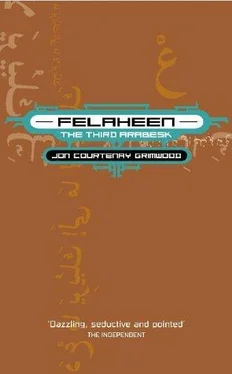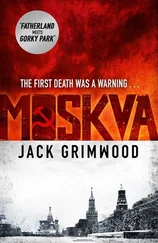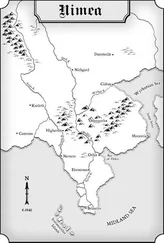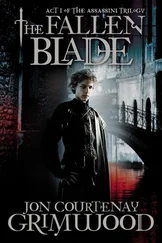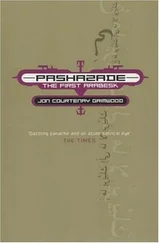"We are running away, right?" Murad asked, once his face was clean again.
"Not exactly," said Hani. She smiled at the boy's exasperated expression. "We're staying out of trouble . . ."
* * *
It was Murad who first saw the bus. And Hani who pointed out that the vehicle was actually a coach. A brief argument about the difference then followed before Murad eventually bowed to Hani's insistence that coaches had smoked-glass windows, air-conditioning and their own loos.
This one even had onboard newsfeed, computer games and four private cabins. A fact advertised in large gold letters along both sides. Right below a line that read Haute Travel: Tripoli and above the URL for a site few locals could get, because Web connections without licence were banned by law in Ifriqiya. Not to mention most other parts of North Africa.
"We need a disguise," said Hani.
Murad stared at her.
"Think about it," said Hani. "Those soldiers were after Murad Pasha and Lady Hana al-Mansur." That Hani admitted her own first name was unusual in itself.
"If they are actually after us," Murad said. He'd been thinking about that.
"Who else would they be after?"
"Ashraf Bey?"
"They waited until he was gone," Hani said firmly. She turned to Murad, face serious. "You're certain they were Kashif's men?"
"I'm sure," said Murad.
"Even though they said they were the Army of the Naked?"
"Yes," Murad said. "That's why I'm sure."
"Okay," said Hani. Peeling $5 from her roll she gave it to Murad. "You got this as a tip from an American journalist," she told the boy.
"Why?"
Hani sighed. "It doesn't matter . . . For showing her the way. For fetching her a glass of water. Make it up."
"What do you want me to get?" Murad demanded.
He bought a white T-shirt, made in Morocco, size XXL and a pair of plastic sandals with sputnik in red across the strap. Murad also bought a Dynamo's hat, which he wrecked by ripping off the brim so that from the front it looked like a skullcap.
"What did you buy that for?" Hani asked.
"The cap?"
"No silly, that . . ." She pointed at the T-shirt still draped over his arm.
"Watch," said Murad and stripped off his soiled Aertex shirt and scrunched it into a ball. Slipping the new shirt over his head, Murad turned his back on Hani and unbuttoned his trousers, stepping out of those as well. With a T-shirt down around his knees, his socks gone and cheap sandals Murad looked like most other kids in the market, his new shirt making do for a robe.
When he turned back Hani was pointedly staring into the distance.
"Your turn," said Murad.
CHAPTER 43
Friday 11th March
"You came," said Major Jalal, as if he'd been waiting hours for Raf to appear. Hawk eyes glittered above a sharp nose and heavy moustache. And the smile that accompanied his comment hovered on the edge of contempt.
"How could I refuse my brother?" Raf said lightly. A single glance was enough to swallow the scene: Major Jalal in full uniform, a lieutenant and, standing behind him, the inevitable black Jeep.
Two soldiers stood by the Jeep trying to look casual.
"Well, now you're here," said Major Jalal, "where would Your Excellency like to sit, front or the back . . . ?"
"Zara?" Raf asked, not moving.
"Your mistress is safe," Major Jalal assured him. "And you can see her soon. But, before that, I've got orders to take you to Kashif Pasha. He would like a word."
Raf smiled. "You know how it is," he said. "Family comes first."
"I understand that's one of the things His Highness wants to talk about." Major Jalal's voice was dry. "The fact you seem to believe he's your brother."
* * *
Kashif hadn't always been manipulative. So people said. Mostly those who'd never met him. As a small boy he'd been loved and loving, open and happy to consider the feelings of others. That was how Kashif Pasha's official biography reported it anyway.
One day, maybe thirty years ago when he was first made a general, so sometime around seventeen, Kashif had demanded sight of his early school reports. Harrying some minor archivist into finding the file and doing whatever was necessary to get it released.
This was during one of Emir Moncef's periodic bouts of madness. With the man camped out under a summer sky somewhere south of Wadi al B'ir, speaking to no one and sleeping between two of Eugenie's troop for warmth. Wearing nothing, apparently. Although the girls were allowed to retain their pants. It was all extremely adolescent.
Of course, only Lady Maryam dared call it madness. Everybody else spoke of the Emir's retreats and his need to remain in touch with the land. But it was madness all the same. A howling depression that had Moncef claiming (literally) to be someone else. At these times only Eugenie could help. Wherever she was and whatever she might be doing, Eugenie stopped doing it and came, elegant and stern-faced. He was quieter after her visits. Sometimes for months and once for the period of a whole year.
The school Kashif attended was at the rear of the Bardo Palace next to a mosque. School and mosque were not connected. It was, however, reasonable to assume they were and many people did, both in Tunis and abroad. There were eighteen and a half pupils in Kashif's class, this being the national average. And his year was taught the national syllabus, which included French, gymnastics, mathematics and poetry. The half pupil was achieved by allowing one boy to attend every other lesson.
If one left out the fact the other seventeen and a half pupils in Kashif's class were either his cousins or chosen from the sons of government ministers, then Bardo High was a typical local school of the kind found all over Ifriqiya. What most news reports forgot to mention was that Kashif's school had only one class, his own. The school opened when he reached five and shut when he reached fifteen; there never was a year below Kashif or a year above. The pupil to staff ratio was two to one.
His reports had been as exemplary as his marks. Each master describing a warm and outgoing child. A boy who'd unquestionably have had a great future ahead of him irrespective of birth.
Having reread these, Kashif Pasha demanded the real reports–on the basis that these must exist. A request which sent the already nervous archivist into near-terminal decline. Faced with arranging the forbidden, the archivist tried to explain to Kashif about secret bags , inadvertently offering the seventeen-year-old boy a whole new source of information and income.
Secret bags were kept in a vault below the Bardo, that much the archivist knew. Once sealed they could only be opened in the presence of a witness, provided . . . There'd followed a long list of stipulations to which the young Kashif hadn't bothered to listen.
Practically dragging the archivist to where the man believed the secret bags were stored, Kashif demanded they both be given entry. With the Emir gone and that wing otherwise empty, the chamberlain had done the obvious; opened the front door and saluted smartly. It had taken Kashif ten minutes to identify the vault and another five to bully someone into unlocking the door. A problem never to arise again after Kashif relieved the porter of his key.
Goatskin, Kashif decided, maybe sheep, nothing too fancy. Cured in a way that was almost intentionally perfunctory and stitched crudely with gut. Impressive signatures covered each bag, mostly from his father and occasionally Eugenie. One from the Soviet ambassador and even one from the Marquis de St. Cloud. Any person wanting to open a bag to examine its contents had to sign the outside before the seal was cut. Some of the newer seals were almost silver, others oxidized down to a dull black.
Читать дальше
